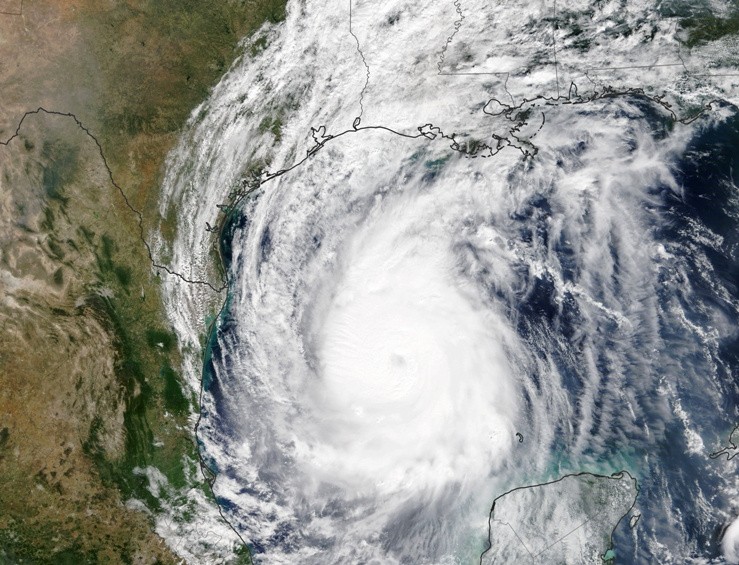Hurricane Delta Aims for US Gulf Coast, Poses Category 3 Storm Threat by Friday

Hurricane Delta will likely make landfall on the U.S. Gulf Coast on Friday, bringing some dangerous weather conditions.
According to a NASA Earth Observatory release, Hurricane Delta is expected to bring some life-threatening storm surges and dangerous winds.
Forecasters believe it will make landfall within 50 miles of Hurricane Laura's landfall point in Louisiana.
The strengthening of Hurricane Delta proves the historic 2020 hurricane season is far from over. It is now the 25th named storm of the season.
After hitting Gulf Coast communities, it is expected to move further inland in the coming days, said the National Hurricane Center.
As of Thursday night, at 11 p.m. EDT, Delta was seen 285 miles south of Cameron, Louisiana. It was moving northwest at 12 mph.
Delta Intensifies
On Thursday, Delta strengthened into a 120-mph Category 3 storm, said a USA Today report. Current weather conditions also indicate a higher chance of the storm becoming stronger as the hours' tick by.
A meteorologist from National Weather Service New Orleans told CNN that Delta would be a "large storm that will extend 140 miles from its center."
Its guts could reach the Baton Rouge area in Louisiana. Delta has already proven itself a record-breaking storm when it hit Mexico's Yucatan Peninsula. There, it brought torrential rain, and its winds were sustained at up to 100 mph.
Trees were knocked down, and power was out in Cancun and Cozumel. Thousands were also forced to evacuate when Delta hit the Yucatan Peninsula.
Since reaching the Gulf of Mexico, Delta gained more strength from warm waters. As it approaches the coast, water temperatures work in its favor at 82°F (28°C). With these developments, residents of southwestern Louisiana are expecting a worst-case scenario.
Dan Kottlowski, AccuWeather hurricane expert, said Delta would likely grow bigger and stronger. It is expected to keep its Category 3 status as it passes through the Gulf and before slamming into the Louisiana coast.
Delta is also considered to be a "major hurricane" as its sustained winds run from 111 to 129 mph. Forecasters also warned of storm surges that could be about seven to 11 feet along portions of the Louisiana coast.
Flash floods are also likely to happen due to heavy rainfall, affecting the central Gulf Coast and the Lower Mississippi Valley.
No matter how intense the winds may be, Kottlowski said the main threat would be wind impacts. Surge is also expected to be "potentially devastating along and near where the hurricane makes landfall."
Texas Braces for Delta
Texas Governor Greg Abbott announced that the state would be bracing to respond to Delta's impact. It prepared resources to support communities along the Gulf coast, said Abbott in a news release.
"Texans in the path of this storm should continue to heed the guidance and direction of local officials," he noted. Abbott also reminded residents to stay cautious and to "Turn Around, Don't Drown."
The governor assured that the state is monitoring the incoming storm and will work alongside local partners to keep their residents safe. Delta is not expected to reach states along the eastern Gulf Coast.
Check these out!
Trump Can Return to Public Engagements by Weekend, White House Doctor Says
Pelosi, Mnuchin Resume Broad Stimulus Talks
COVID-19 Outbreak in White House as 34 People Test Positive for Coronavirus
Subscribe to Latin Post!
Sign up for our free newsletter for the Latest coverage!
© 2026 Latin Post. All rights reserved. Do not reproduce without permission.














